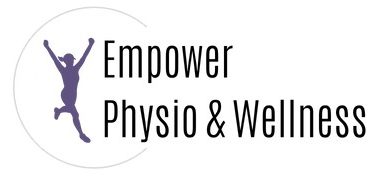Being happy seems like it should be so simple, yet most of us struggle with it. Yale professor Laurie Santos was onto something when she released a course called The Science of Well-Being in 2018 (it’s free and open to the public.) In my own circles, many people questioned why such a prestigious university was teaching a course on happiness. Others felt it was a no-brainer and we shouldn’t need to be taught how to be happy.
I would argue that learning how to be happy is one of the greatest skills we can learn in our lifetime. With loneliness and mental health crises on the rise, it’s time we take a step back and look at what a happy life really is and how to live it out. In this blog post, I’m sharing what I’ve learned about achieving happiness based on personal experiences, my work with clients, and by educating myself on science-backed techniques from experts like Dr. Joe Dispenza.
From my perspective, your thoughts (or mindset) are the greatest determinant of happiness. Doing the basics well when it comes to sleep, exercise, nutrition, and purpose allows the internal thoughts of happiness to permeate more fully in your life. Let’s unpack this.
Thoughts are the number one determinant of happiness
Your thoughts play a massive role in how you experience life. Put simply, negative thoughts produce negative emotions and experiences while positive thoughts produce positive emotions and experiences.
The thing is, 95% of our thoughts are automatic, originating from the subconscious brain. They are not conscious thoughts we have but rather thought patterns that have run for most of our lives (usually originating during childhood) on an unconscious level. You can think positive thoughts but they only account for 5% of your thinking during the day.
For example, you can say, “I’m not going to yell at my kid today,” but for the rest of the day, your brain can be running automatic thoughts that you’ve acquired over your lifetime that say:
“I can’t control my emotions.”
“Things always end badly.”
“I never end up following through.”
These negative thoughts negate that one positive, conscious thought that you had. So if these sneaky, subconscious thoughts are running 95% of the day and we aren’t even aware of them, how do we possibly go about changing them? It’s 100% possible–it just takes a bit of work.
The first thing to do is to become aware of your thoughts. Do you realize what you’re telling yourself on a daily basis? Do you know what’s going on in your mind chatter? You need to observe these thoughts. That’s the first step in recognizing what the underlying thought program is.
How? Get out of autopilot and tune in. Once you recognize your thoughts, you can make the active decision to think new thoughts. By practicing on a daily basis, you can re-write the dialog in your mind. So instead of defaulting to guilt when you think someone is mad at you, you can approach the situation with curiosity and compassion about what is actually going on. Instead of defaulting to anger, you can respond with peace and calm.
A great way to do this is through meditation. Meditation actually means to become aware. So set aside your preconceived notions and look at it as a way to gain awareness about yourself. There are many ways to meditate but find a method that works best for you. Here’s a guide to get started:
1. Sit or lay in a quiet space and close your eyes. (Optional: If you’re worried about losing track of time, set a 7-minute timer on your phone so you can let go of that worry.)
2. Focus your attention on your breathing. Inhale and exhale through your nose to a count of 5.
3. Observe the thoughts that come and go. Don’t try to change them. Just observe. If/when your mind wanders, just gently bring your focus back to observation. Be curious about what comes up for you.
4. Write down any “aha’s” or thoughts that came up for you. Then rinse and repeat!
Getting in a daily habit of doing this will help you become more conscious of your thoughts while nurturing thoughts that truly serve you. Please know that re-writing negative thoughts takes consistent effort. It does not happen overnight. So don’t get stuck feeling discouraged. Rather, embrace curiosity and keep on going on this journey. If you want more information on this process, I highly recommend diving into the work of Dr. Joe Dispenza. Check out this podcast episode or grab a copy of my favorite book of his, Breaking the Habit of Being Yourself.
While your thoughts are the number one determinant of happiness, there are other lifestyle factors that help to regulate your nervous system, reduce inflammation and stress in the body, and create energy.
Sleep is crucial to recover from the stresses of the day
Sleep is widely important and plays a vital role in helping you recover from a workout or a day full of activities, calm down after a busy workday, and heal from an illness or injury. Poor quality sleep can make it harder to observe and change your thought patterns, so let’s work smarter, not harder. Establish a solid bedtime routine to allow your mind and body to transition into restorative sleep. That means limiting time on your phone in the evening, dimming the lights before bed, and keeping your bedroom cool.
Exercise helps to productively process stress
Those of you who follow my content know how passionate I am about exercise. Motion is lotion and we must move on a regular basis to promote blood flow, build muscle, reduce inflammation, boost immune function, and improve our mindset. Exercise has so many incredible benefits for the mind and body.
When our stress response is activated, hormones and neurotransmitters prepare the body to run or fight, as if we were running from a bear. When there is no literal bear to run from, we need to use the cortisol and glucose the body releases to help us respond to the stressor, otherwise, they just build up in our bodies leading to chronic inflammation. So go on a walk or run, lift weights, punch a punching bag…whatever kind of movement feels good to you.
Nutrition directly impacts how you feel
Bottom line: you get out of your body what you put into it. Eat crap and you’ll feel like crap. Eat good food and you’ll feel good. Processed, sugary foods are toxic to the body. This toxicity increases inflammation and also expends a lot of energy for our bodies to try and detox and get by while running on empty. Again, work smarter, not harder! Fuel your body with fruits and vegetables, eat plenty of protein, and drink at least half of your body weight in ounces of water per day.
Feeling a sense of purpose in life is one of the secrets to longevity
When we feel like our efforts are fulfilling a higher mission beyond ourselves, we are more likely to feel content and happy. So do things that bring you joy like teaching your kids or grandkids life skills, volunteering at a charity that is meaningful to you, smiling at strangers, loving on your family, and sharing the things you’ve been blessed with. This all creates energy in your body and therefore energizes your thoughts.
Need some help? We’re proud to offer a well-rounded and holistic approach at Empower Physio and Wellness. Contact us and we’ll come up with a plan to guide you in your pursuit of health and happiness.



